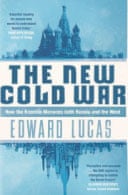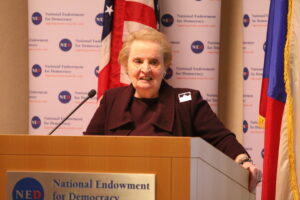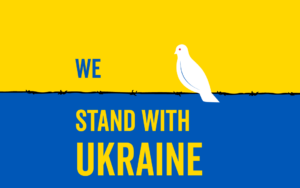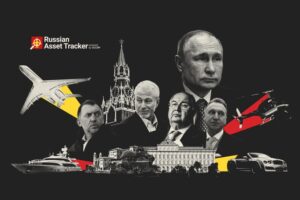 The war in Ukraine is prompting considerable speculation about the onset of a new Cold War.
The war in Ukraine is prompting considerable speculation about the onset of a new Cold War.
The cold-war strategy of “containment” is being studied for the current age. Truman’s America was engaged in a fight against communism; US President Joe Biden sees a global contest against autocracy. This arouses dread, but also hope, The Economist writes:
Dread, because of the return of war in Europe, renewed big-power confrontation and the increased risk of nuclear conflict. Hope, because Russia’s military incompetence, Ukraine’s valour and the West’s newfound unity raise confidence that the American-led liberal order can prevail. Writing in American Purpose, an online magazine, Francis Fukuyama of Stanford University, who in an earlier bout of optimism coined the notion of the “end of history” about the demise of the Soviet Union, goes so far as to predict that Ukraine will inflict “outright defeat” on Russia and make possible a “new birth of freedom”.
“During the cold war the United States and the Soviet Union were at daggers drawn but usually did not stab each other directly,” explains @RHFontaine @CNASdc https://t.co/QFZIoqDOts
— Democracy Digest (@demdigest) March 25, 2022
Madeleine Albright never stopped pushing the envelope for freedom and democracy, including cajoling sometimes skeptical generals and diplomats to see human rights as a national security imperative, says Hillary Clinton.

Madeleine Albright
In a prescient column published Feb. 23, she warned that an invasion of Ukraine would be “a historic error” that would leave Russia “diplomatically isolated, economically crippled and strategically vulnerable in the face of a stronger, more united Western alliance.” As happened so often, the man with the guns was wrong and Madeleine was right, she writes for The Times.
A turning point for democracy
Stanford’s Fukuyama says that the Ukraine war is a turning point for Western-style democracy, and institutions such as NATO are getting a boost in popularity (below). People will eventually turn their backs on authoritarian, populist and nationalist ideologies and leaders, in his estimation, and relearn how to tolerate differences.
“When President Biden first talked about his vision of a confrontation between autocracy and democracy, for many people it sounded a little bit theoretical,” says Michal Baranowski, senior fellow at the German Marshall Fund of the United States and director of its Warsaw office. “But now we in Europe are experiencing a real front in that war,” he told Christian Science Monitor, “and that gives a very clear and understandable reality to this existential fight [Mr. Biden] has been talking about.”
 In recent years many young citizens of rich democracies have been in a funk over the virtues of democracy and liberalism. Rather than fighting for survival, they have been skirmishing over pronouns, notes Andrés Velasco, Dean of the LSE and a former presidential candidate and finance minister of Chile. Rather than fearing that something they said on a bus could cause armed men to drag them out of bed in the middle of the night, they have worried that misspeaking in the classroom could earn them social-media opprobrium.
In recent years many young citizens of rich democracies have been in a funk over the virtues of democracy and liberalism. Rather than fighting for survival, they have been skirmishing over pronouns, notes Andrés Velasco, Dean of the LSE and a former presidential candidate and finance minister of Chile. Rather than fearing that something they said on a bus could cause armed men to drag them out of bed in the middle of the night, they have worried that misspeaking in the classroom could earn them social-media opprobrium.
But the widespread condemnation of Vladimir Putin’s war on Ukraine points to the emergence of a noble strand of identity politics based on the shared values of freedom, dignity, and respect for human rights, he writes for Project Syndicate.
Resolute pluralism
In Putin’s mind, there’s a kind of confusion of pluralism with weakness. He’s misjudged both Zelensky and Biden, who are both pluralists: They’re both willing to look at things from various points of view. That can look like a form of weakness, Yale historian Timothy Snyder tells the Post. But history also shows that you can be a resolute pluralist. It’s actually a worldview. In very different ways, Zelensky and Biden both embody that: At the end of the day, this whole idea that we listen to each other is something that we’re going to defend.
Will Putin’s #UkraineRussiaWar shift democracies’ young from fighting over personal pronouns to embracing a noble strand of identity politics based on the shared values of freedom, dignity, & human rights? @AndresVelasco @consuelosaav asks in @ProSyn
https://t.co/WPeqko2Aq9— Democracy Digest (@demdigest) March 25, 2022
Operational unity
Russia is a radically anti-democratic country now. Not only has it done frightful things to its own society; it has invaded another country that happens to be an imperfect democracy. We’re also an imperfect democracy, adds Snyder. When you have to look straight at the reality that a big powerful country is aimed at taking imperfect democracies and wiping them out, that gives you pause.

OCCRP
“This should be a moment for rallying and reinforcing European democracies, but [Biden is] going to need to do more than that,” says William Galston, a former NED board member at the Brookings Institution in Washington.
Noting that “this is not too early to begin serious discussions about how this war could end,” he adds that “if Biden doesn’t move the discussion forward, some people will wonder why he bothered to make the trip.”
Madeleine Albright rejected the criticism, renewed recently, that NATO’s expansion needlessly provoked Russia and is to blame for its invasion of Ukraine. As the Princeton historian Stephen Kotkin has noted, that argument ignores Russia’s centuries-long efforts to dominate its neighbors, Hillary Clinton adds in The Times:
Madeleine would be quick to add that it also erases the aspirations and autonomy of the former Soviet bloc countries that threw off their chains, built fragile democracies and rightly worried about Russian revanchism. She would encourage us to listen to the insights of leaders like our friend Mr. Havel, who said the message of NATO expansion is that “Europe is no longer, and must never again be, divided over the heads of its people and against their will into any spheres of interest or influence.”
Others suggest that the president has to go beyond a show of democratic solidarity to specifics, CSM adds.
“If Biden is only looking for spiritual unity from this trip … it will look like a bust,” says Stephen Sestanovich, senior fellow for Russian and Eurasian studies at the Council on Foreign Relations in Washington. “The big test” will be “to make sure the policies of democracies work,” he adds. “If Biden is able to make progress on operational unity, … the trip can come off a success.”







